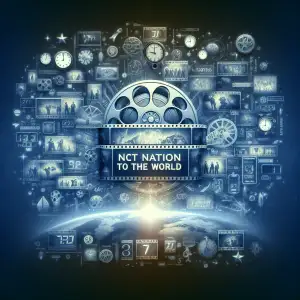Dive into Turkish Cinema with These Must-Watch Turkce Dublajli Film

- Popularity of Turkish Dubbing
- History of Turkish Dubbing
- The Process of Dubbing Films
- Famous Turkish Voice Actors
- Impact on Turkish Culture
- Availability of Dubbed Films
- Preferences for Dubbed Films
- Criticism of Turkish Dubbing
- The Future of Turkish Dubbing
- Learning Turkish Through Dubs
- Dubbing vs. Subtitles in Turkey
Popularity of Turkish Dubbing
The prevalence of Turkish dubbing, particularly for movies, is striking. This popularity can be attributed to several factors. Firstly, Turkish audiences have developed a strong preference for consuming foreign content in their native language. This preference stems from a desire for a more immersive and emotionally resonant viewing experience. The familiarity and comfort of hearing beloved characters speak Turkish enhance the emotional connection and understanding of the plot.
Moreover, the high quality of Turkish dubbing has contributed to its widespread acceptance. Skilled voice actors, often meticulously chosen for their vocal resemblance to the original actors, breathe life into the characters, ensuring a seamless and enjoyable viewing experience. The meticulous translation and adaptation process further enhance the quality, ensuring that the dubbed dialogue flows naturally while preserving the original intent and humor.
This dedication to quality has resulted in Turkish dubbing becoming a cultural phenomenon. Many viewers, even those proficient in English, often choose to watch foreign films and TV shows with Turkish dubbing. The familiarity of the voices, combined with the high production value, has solidified Turkish dubbing as a beloved and integral part of the country's entertainment landscape.
History of Turkish Dubbing
The history of Turkish dubbing is intertwined with the country's love for cinema. It all began in the 1950s, a time when going to the movies was a huge deal. Back then, foreign films, especially Hollywood blockbusters, were all the rage. But there was a catch: most people didn't speak English. So, Turkish distributors came up with a brilliant solution – dubbing!
The first attempts at Turkish dubbing were a bit rough around the edges. Imagine hearing John Wayne speak Turkish with a thick accent! But over time, Turkish dubbing studios upped their game. They brought in talented voice actors who could convey emotions and nuances with incredible accuracy. Turkish dubbing became so good that it actually enhanced the viewing experience for many.
One of the key reasons why "Türkçe dublajlı film" (Turkish dubbed film) became such a phenomenon is the emotional connection it fostered. Hearing familiar voices breathe life into beloved characters created a sense of intimacy and familiarity. It's no wonder that generations of Turks grew up watching dubbed versions of classics like "The Godfather" and "Gone with the Wind."
The impact of Turkish dubbing extends beyond just entertainment. It has played a significant role in shaping the Turkish language itself. Many English words and phrases have seamlessly integrated into everyday Turkish, thanks to their repeated use in dubbed films and TV shows.
Today, while subtitles have gained popularity, especially among younger generations, Turkish dubbing remains a beloved tradition. It's a testament to the power of language and the enduring appeal of a well-told story, regardless of the original tongue.
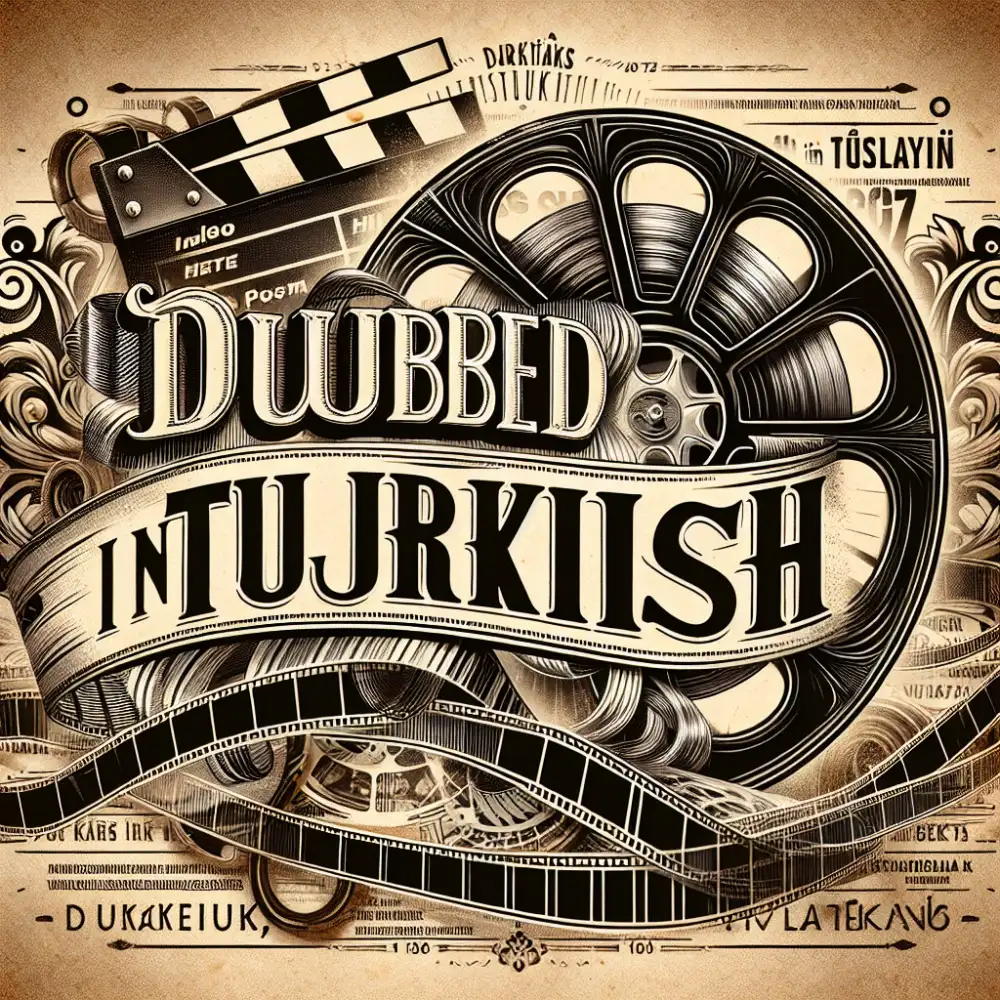
The Process of Dubbing Films
Dubbing films into Turkish, much like in any other language, is a multi-layered process that breathes new life into a film for a Turkish-speaking audience. It all begins with translation, where the original script is carefully adapted to capture not just the meaning but also the nuances, humor, and cultural references of the original dialogue. This is where the real art lies, as a direct translation can often fall flat. The translated script then goes through several revisions to ensure it synchronizes with the lip movements of the actors on screen, a crucial aspect of believable dubbing.
Next comes the casting of voice actors. Finding the perfect Turkish voices to match the original actors' tone, delivery, and emotional range is paramount. These voice actors are true artists in their own right, capable of conveying a wide range of emotions using only their voices. Once the cast is assembled, they enter the recording studio. Here, under the guidance of a voice director, they meticulously record each line, ensuring their delivery matches the on-screen emotions and actions. The voice director plays a vital role in ensuring the quality and consistency of the dubbing, providing feedback and direction to the voice actors.
Finally, the recorded dialogue is mixed and balanced with the original soundtrack and sound effects, resulting in a seamless audio-visual experience. This final stage is crucial in creating a product that sounds natural and doesn't distract the viewer from the story. A well-dubbed film, like those often enjoyed by Turkish audiences, should feel like it was originally made in Turkish, allowing viewers to fully immerse themselves in the story without language being a barrier.
Famous Turkish Voice Actors
The world of Turkish cinema is booming, and with it, the art of Turkish dubbing. Many international films find new life with Turkish voice actors breathing emotion and personality into beloved characters. These actors, with their impressive vocal range and acting skills, often become synonymous with the characters they portray.
One can't discuss Turkish dubbing without mentioning the legendary Çetin Tekindor. His voice, powerful and resonant, has graced the Turkish versions of countless films, including bringing characters like Al Pacino's Tony Montana in Scarface and Robert De Niro's Don Vito Corleone in The Godfather to Turkish-speaking audiences. His performances are masterclasses in conveying nuance and depth, making him a true icon in the industry.
Another prominent figure is Tilbe Saran, known for her versatility and ability to embody a wide range of characters. Her voice has brought to life characters like Meryl Streep's Miranda Priestly in The Devil Wears Prada and Cate Blanchett's Galadriel in The Lord of the Rings trilogy. Her performances are marked by their emotional honesty and captivating delivery, making her a favorite among viewers.
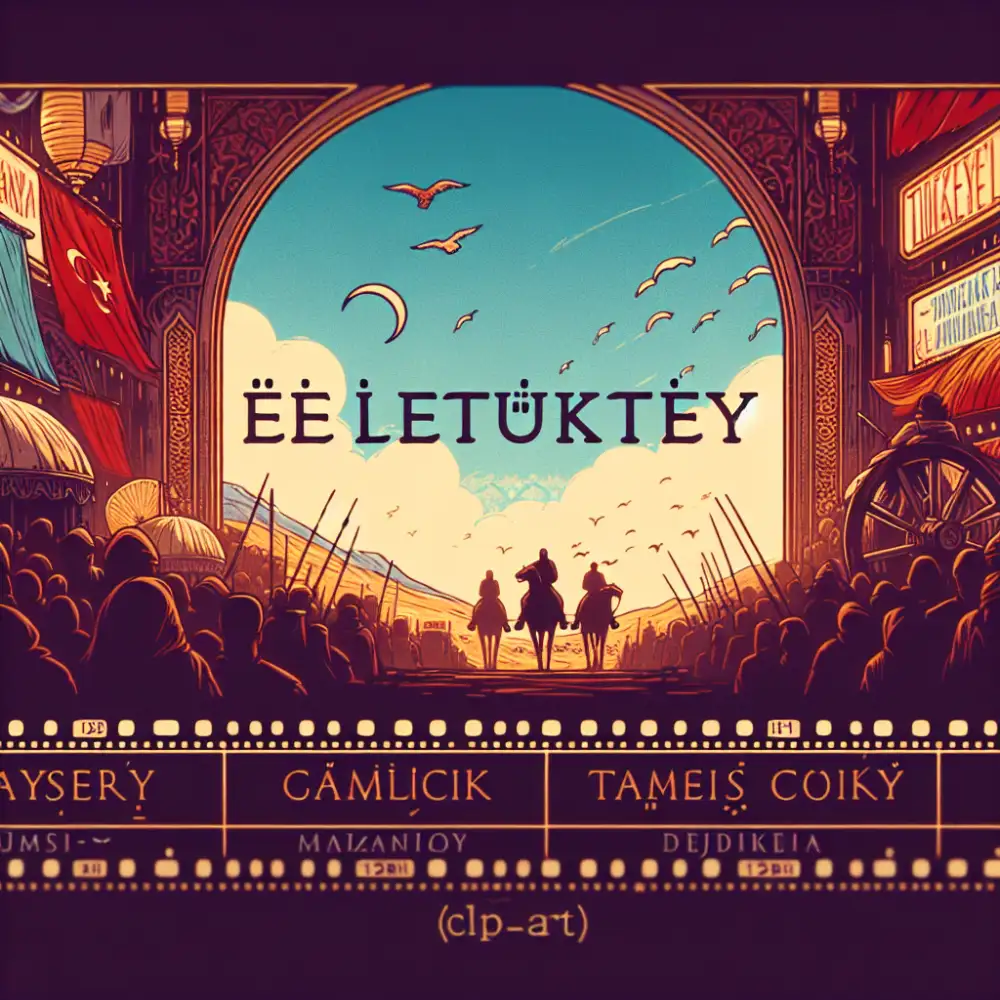
These actors, along with many other talented individuals, contribute significantly to the enjoyment of international films in Turkey. Their dedication to their craft ensures that the dubbed versions resonate deeply with the audience, often becoming the preferred way to experience these cinematic masterpieces. So, the next time you watch a foreign film dubbed in Turkish, take a moment to appreciate the artistry of the voice actors who bring the characters to life.
Impact on Turkish Culture
The advent of Turkish-dubbed films, or "Türkçe dublajlı film" as they are known locally, has profoundly impacted Turkish culture. Before, accessing foreign films meant navigating subtitles, a barrier for many, especially children and the elderly. Dubbing opened up a world of cinema, exposing Turkish audiences to diverse cultures and narratives. This access played a crucial role in shaping perspectives and understanding global issues.
Iconic voices like Mazlum Kiper and Sungun Babacan became synonymous with Hollywood stars, their distinct tones etching themselves into the Turkish psyche. The familiarity of these voices often led to a stronger emotional connection with dubbed films. However, this cultural shift also sparked debate. Some argue that dubbing, while increasing accessibility, diminishes the original artistic intent and nuances of the film. The debate continues, highlighting the complex relationship between cultural exchange, accessibility, and artistic integrity in the context of global cinema.
Availability of Dubbed Films
The availability of Turkish-dubbed films, or "Türkçe dublajlı film" as they are known locally, has exploded in recent years. This surge in popularity can be attributed to several factors. Streaming platforms, recognizing the sizable Turkish-speaking audience worldwide, have significantly expanded their libraries to include a vast selection of films dubbed in Turkish. This accessibility has been a game-changer, allowing viewers to enjoy movies from various countries and genres in their native language. The high quality of Turkish dubbing, often featuring the voices of renowned actors, further enhances the viewing experience.
Beyond streaming services, Turkish television channels have also played a significant role in promoting dubbed films. By broadcasting popular Hollywood blockbusters and international cinema in Turkish, they've made these films accessible to a broader audience, including those who might not be comfortable with subtitles. This widespread availability has not only provided entertainment but also fostered a deeper appreciation for global cinema among Turkish speakers.


Preferences for Dubbed Films
The increasing accessibility of Turkish cinema has sparked a global debate: subtitles or dubbing? While subtitles have traditionally been the go-to for foreign films, dubbed audio, particularly in Turkish, is gaining traction. This preference for "Türkçe dublajlı film," meaning "Turkish dubbed film," stems from various factors.
Firstly, it caters to a wider audience, including those who may struggle with reading subtitles due to visual impairments, learning differences, or simply a preference for auditory input. This accessibility broadens the reach of Turkish cinema, allowing stories to transcend linguistic barriers and resonate with a global audience.
Secondly, high-quality Turkish dubbing often features renowned voice actors who bring characters to life with their vocal talents. Their performances can enhance the emotional impact of the film, making the viewing experience more immersive and enjoyable.
However, the debate continues. Some argue that subtitles preserve the authenticity of the original work, allowing viewers to appreciate the nuances of the actors' performances and the original language's musicality.
Ultimately, the choice between subtitles and Turkish dubbing is subjective. It depends on individual preferences, viewing habits, and the specific film. What matters most is that viewers have the option to experience Turkish cinema in a way that resonates with them, fostering cross-cultural appreciation and understanding through the power of storytelling.
The increasing accessibility of Turkish cinema has sparked a global debate: subtitles or dubbing? While subtitles have traditionally been the go-to for foreign films, dubbed audio, particularly in Turkish, is gaining traction. This preference for "Türkçe dublajlı film," meaning "Turkish dubbed film," stems from various factors.
Firstly, it caters to a wider audience, including those who may struggle with reading subtitles due to visual impairments, learning differences, or simply a preference for auditory input. This accessibility broadens the reach of Turkish cinema, allowing stories to transcend linguistic barriers and resonate with a global audience.
Secondly, high-quality Turkish dubbing often features renowned voice actors who bring characters to life with their vocal talents. Their performances can enhance the emotional impact of the film, making the viewing experience more immersive and enjoyable.
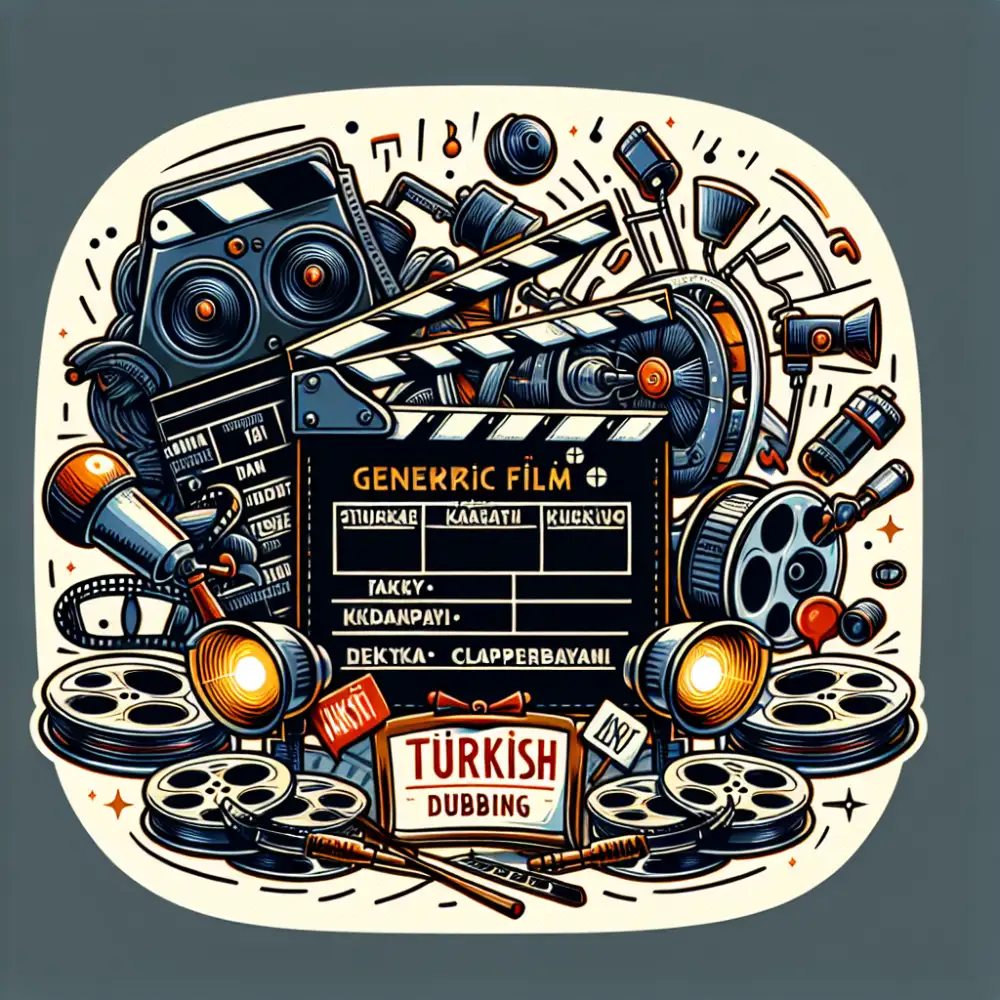
However, the debate continues. Some argue that subtitles preserve the authenticity of the original work, allowing viewers to appreciate the nuances of the actors' performances and the original language's musicality.
Ultimately, the choice between subtitles and Turkish dubbing is subjective. It depends on individual preferences, viewing habits, and the specific film. What matters most is that viewers have the option to experience Turkish cinema in a way that resonates with them, fostering cross-cultural appreciation and understanding through the power of storytelling.
Criticism of Turkish Dubbing
Turkish dubbing, while immensely popular, has faced its share of criticism over the years. One common complaint revolves around the limited pool of voice actors, leading to a sense of homogeneity across different films and TV shows. This repetition can be jarring, especially for avid viewers who begin to associate certain voices with a wide range of characters, sometimes vastly different from one another. This can detract from the viewing experience, pulling audiences out of the narrative as they recognize familiar vocal patterns.
Another point of contention is the translation itself. Critics argue that the dubbing process often sacrifices nuance and subtlety for straightforward delivery. Idiomatic expressions, humor, and cultural references can get lost in translation, resulting in a diluted or even inaccurate representation of the original dialogue. This is particularly noticeable in films or shows with complex narratives or character interactions, where the emotional impact hinges on the subtleties of language.
Furthermore, some argue that the widespread prevalence of Turkish dubbing has inadvertently hindered language learning. With readily available dubbed content, there's less incentive for viewers to engage with original audio and subtitles. This can limit exposure to different accents, pronunciations, and the natural flow of other languages, potentially impacting language acquisition and cultural understanding.
The Future of Turkish Dubbing
The global rise of Turkish film and television has brought a new spotlight on "Türkçe dublajlı film," the term for Turkish-dubbed content. While Turkish audiences have long enjoyed international films and shows with local voiceovers, the increasing demand for Turkish content abroad begs the question: what does the future hold for Turkish dubbing?
One possibility is a shift towards greater authenticity and representation. As Turkish cinema gains international recognition, there's a growing desire for dubbing that accurately reflects Turkish culture and language nuances. This means moving away from literal translations and embracing culturally-specific idioms and expressions. Imagine watching a Hollywood blockbuster where the jokes land perfectly in Turkish, capturing the original humor without feeling forced.

Furthermore, the rise of streaming platforms has opened up new avenues for Turkish voice actors and dubbing studios. With a global audience at their fingertips, there's potential for increased collaboration and exposure. We might see more Turkish voice actors lending their talents to international productions, further blurring the lines between local and global entertainment.
However, challenges remain. Maintaining high-quality dubbing requires significant investment in talent, technology, and training. The industry needs to attract and nurture new voice actors while ensuring fair compensation and working conditions.
Ultimately, the future of Turkish dubbing hinges on its ability to adapt and innovate. By embracing cultural sensitivity, investing in talent, and leveraging technology, Turkish dubbing can solidify its place in the global entertainment landscape.
| Feature | Turkish Dubbed Films | Original Language Films (with Turkish Subtitles) |
|---|---|---|
| Language Accessibility | Accessible to Turkish speakers without reading subtitles. | Requires reading subtitles, may not be accessible to all Turkish speakers. |
| Emotional Impact | Dubbing quality can vary, potentially impacting emotional delivery. | Original performances convey intended emotions, potentially stronger impact. |
| Availability | Widely available, often found on Turkish TV channels and streaming platforms. | May be limited, often found in select cinemas or international streaming platforms. |
Learning Turkish Through Dubs
Watching movies and TV shows dubbed in Turkish, known as "Türkçe dublajlı film," can be a fun and effective way to supplement your Turkish language learning journey. While subtitles are great for exposure to the written language, dubbing offers immersion in the spoken language, allowing you to pick up on pronunciation, intonation, and common phrases.
Start with familiar films or shows you enjoy. Knowing the plot and characters beforehand allows you to focus on the Turkish dialogue. Pay attention to how actors pronounce words and the rhythm of their speech. Don't be afraid to rewind and listen to phrases multiple times. As you progress, challenge yourself with different genres and dialects. Comedies offer everyday language, while historical dramas expose you to more formal Turkish.
Remember, while dubbing is a valuable tool, it's most effective when combined with other learning methods like language classes, textbooks, and interaction with native speakers.
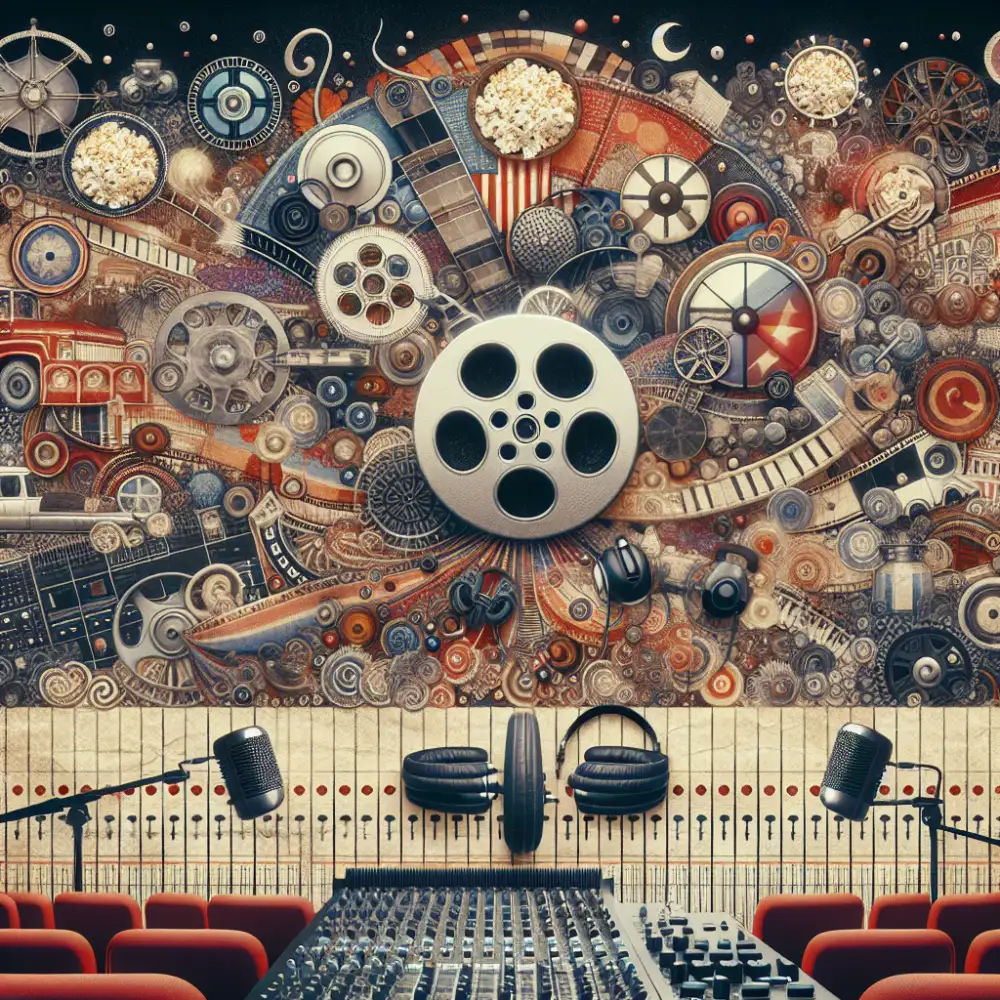
Dubbing vs. Subtitles in Turkey
The love for "dublajlı film" in Turkey runs deep. Imagine settling in to watch your favorite Hollywood blockbuster, but instead of hearing Tom Cruise's familiar tones, you hear the voice of a Turkish actor. That's the reality for many Turks who prefer their films "dublajlı," meaning dubbed into Turkish. This preference is so strong that finding a film showing in its original language with Turkish subtitles can be a real challenge.
There are a few reasons for this. Firstly, Turkey boasts a long and proud tradition of voice acting. The quality of Turkish dubbing is often praised for its high standards, with voice actors meticulously chosen for their ability to embody the original actors' nuances. This creates a seamless viewing experience for those who might find subtitles distracting. Secondly, for some, watching a dubbed film is simply a matter of comfort and familiarity. It allows for a more passive viewing experience, where they can fully immerse themselves in the story without the need to constantly read subtitles.
However, the rise of streaming platforms has begun to challenge the dominance of dubbing. With a wider variety of content available, including films and TV shows in their original languages, Turkish audiences are increasingly exposed to subtitled content. This has led to a growing appreciation for the original performances and the nuances that can be lost in translation. While "dublajlı film" remains a cultural staple in Turkey, the debate between dubbing and subtitles is far from over.
Published: 26. 06. 2024
Category: Movies

